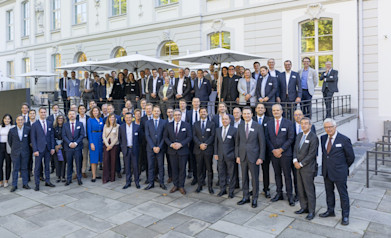Urgence gaz 0 800 028 800
How do you produce electricity from hydrogen?
Hydrogen has been in use for many years, particularly in the electronics, chemicals, glass and metalworking industries, but also in the space sector as a rocket fuel. Hydrogen can also be used for heat production, transport, or to store energy for later conversion to electricity. It has a very promising part to play in decarbonising many sectors and contributing to the energy transition.
Hydrogen to store electricity
Hydrogen is not a primary energy source like coal, oil or natural gas; it is an energy carrier that must be produced before it can be used. This energy carrier can be used to store electricity. It provides a way of dealing with the over-production of renewable electricity (solar, wind) at some times and shortfalls at other times.
While renewable electricity’s share of the world energy mix is increasing, we really need to find solutions to retain that energy, which cannot be stored over long periods in large quantities. Hydrogen production has emerged as one such solution. Indeed, the public authorities are encouraging the production of decarbonised hydrogen, particularly by electrolysis of water. This production method uses water and renewable electricity from wind or solar. The expression “Power-to-Gas” is also used to describe the process that can be used to convert the surplus electricity produced from uncontrollable sources (sun, wind) into hydrogen so that it can be stored for future use.
Hydrogen to produce electricity
Next, the electricity can be produced from hydrogen through the use of fuel cells. In a fuel cell, the hydrogen is combined with oxygen in the air to generate an electric current. This production method does not emit any greenhouse gases – just heat and water. This means hydrogen enables the production of clean, silent electricity, which is available just when it is needed. These fuel cells can be used on board electric vehicles, or in areas which are not connected to the electricity supply grid.
Votre avis nous intéresse !
Pour aller plus loin
Sur la même thématique
En savoir plus
Strategic hydrogen transport projects developed by NaTran and Teréga in southern France recognized as being of European importance
![H2med project]()
H2med project successfully completes geophysical prospecting campaigns and achieves technical feasibility for the BarMar project
![]()
In Berlin, Expanding H2med Alliance Meets to Accelerate the Deployment of the Most Advanced European Hydrogen Corridor


